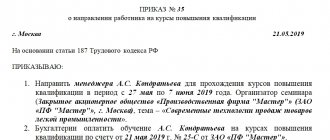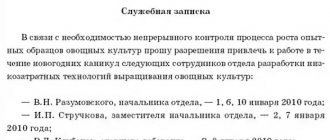But in addition to the above-mentioned places that fall into the risk zone, thefts have also begun to occur more and more often at workplaces.
Firms and corporations are developing, people are using the property of legal entities .
That is why every employee tries to take something he needs out of offices, enterprises and factories.
Sometimes such thefts are quite harmless - there is nothing wrong with the fact that an employee took home a couple of pens and a package of paper.
But sometimes workplace reaches the absurd level. Let's talk about this.
Concept
Theft at work is a serious crime.
You risk not only being caught, but also being fired from your income-generating job.
But many people are obsessed with the desire to appropriate other people's property .
There is no separate article in the Criminal Code for theft at work.
But, in the criminal code there is article 158 , which covers all types of thefts committed, which means it is quite possible that theft at work can also be qualified under this article.
Let's take a closer look.
What exactly is theft?
Theft is the secret theft of someone else's property.
The criminal code and many scientists and theorists tell us this.
Theft at work is the secret theft of property in the workplace that belongs to the employer or one of the employees.
There can be many variations of theft at work.
Hence there are hundreds of types of theft in the workplace.
We will look at the most popular ones below.
Read the full article 158 of the Criminal Code of the Russian Federation. Theft.
Responsibility of an employee for committing theft at work
If an employee stole the organization's property, what is his responsibility?
It can be combined: civil, criminal, administrative. Everything will depend on how financially the company suffered from the actions of the perpetrator.
Civil responsibility
First of all, according to the norms of labor legislation, a crime is the basis for full financial liability. It implies compensation for damage at current prices.
The final decision is made by the court. However, it is possible that the parties may enter into an amicable agreement. Under its terms, the employee can return the stolen property or provide an equivalent replacement.
Administrative responsibility
If the theft committed at the place of work was insignificant (within 1000 - 2500 rubles), then administrative liability may arise.
As part of it, the culprit faces a fine, arrest for 15 days, or compulsory work for a certain duration. All sanctions are prescribed in Art. 7.27 Code of Administrative Offenses of the Russian Federation.
Criminal liability
Establishes criminal liability for theft at work, Art. 158 of the Criminal Code of the Russian Federation. It contains several parts that establish sanctions depending on the method of theft and the amount of damage caused to the enterprise.
Theft of money from the company's cash register
Stealing money from a company's cash register is a very serious crime.
The fact is that the theft of more than a thousand rubles is considered large.
It is unlikely that someone would commit such a crime for less money, so the risk of being caught for this crime is very high.
Both an employee directly related to the cash register and an employee engaged in other functions can commit such a crime.
From the store's cash register as a cashier
Thefts often occur in stores by employees working at the cash register .
We're talking about theft from a store cash register by a cashier.
That is why many large stores now install surveillance cameras directly above the cash register.
This is done in order to stop the crime in time.
The cashier has direct access to funds. That is why it is in the interests of the cashier to maintain the safety and strict accountability of funds.
What the law says
The possibility of unilaterally dismissing an employee who has committed theft at the place of work is enshrined in paragraphs. "d" clause 6 of Art. 81 Labor Code of the Russian Federation. The extent of the theft does not matter - a sanction can be imposed even if the damage is minor. It also does not matter who suffered from the guilty actions - the employer, colleagues or third parties (for example, clients or partners of the company).
In addition to theft, grounds for dismissal may include:
- waste of money or material assets;
- intentional damage or destruction of property.
What to do if you are accused of stealing money at work?
Sometimes it happens that a theft has been committed, but employers, not wanting to figure out who is to blame for what happened, accuse someone of a crime against property, namely the theft of money at work.
At its core, if you are not to blame for the crime that occurred, the employer himself is violating the law by accusing you of a crime, which means reporting slanderous information to everyone.
Ask for a thorough investigation and certainly proof that the crime was committed by you.
Also tell the employer that until your guilt is established, no one has the right to disseminate such information that is not true , otherwise you will file a lawsuit.
How to deal with petty theft in production?
April 22, 2011 Petty theft in production and trade has always existed in Russia. The problem is not some national peculiarities, but the lack of a sense of ownership. The concept of private property, which one wants to increase and protect, ceased to exist in the USSR. The revolution and further punitive measures (dekulakization, NEP, surplus appropriation) destroyed even those owners who, one might say, fed Mother Russia. Good intentions - to nationalize everything, creating public socialist property - eventually turned in the mass consciousness of the people into a perpetual motion machine of industrial theft (“everything around is collective farm - everything around is mine”, “bring everything that is bad”), and it is impossible to eradicate it. This means we need to fight this, at least minimize losses from theft.
Let's dive into history. The practice of solving the problem of theft and embezzlement in Soviet Russia was based primarily on punitive control functions: OBKhSS, departmental KRU (control and audit departments), security departments at enterprises. In the country of developed socialism, there were people's control at enterprises and organizations, commissions for the preservation of socialist property, and commissions under trade union committees.
Priority for systematic control was given to physical security services (PSS), which ensure access control and direct protection of the enterprise territory, vehicle entries and exits. The presence of security at the enterprise partially solved the problem of petty thefts, and large thefts were carried out with the participation of unscrupulous employees of this service.
Naturally, methods were developed to influence nonsenses: they were caught, dealt with and even punished, i.e. there was a unified system of formal punishment. However, in practice, informal regulation of this problem flourished. Of course, the management of enterprises, starting with middle management (foremen, deputy heads of workshops), was aware of what and how much could be carried out “by hand” without visible production and material damage. The larger the enterprise and the longer the technological chain from the receipt of raw materials to the shipment of finished products using invoices, the more and more often the thefts occurred.
The norms for the consumption of raw materials and standardized losses were approved by industry ministries, and all enterprises in the same food industry produced products according to the same unified recipes. Actual expenses should not exceed established standards. Obviously, there were enterprises with outdated equipment that really worked with huge losses, but the population had to be fed, and this justified a lot, even waste. Large enterprises were engaged in modernizing equipment and optimizing technological processes in order to save raw materials and reduce actual production losses, and these losses actually decreased, but accounting for raw materials and production of finished products was carried out according to approved standards. Minor theft of butter, flour, sugar, sausage (5–10 kg per ton), as it was believed, did not cause visible quantitative and qualitative damage to the enterprise and products. The shop managers knew the names of the stealing workers, but allowed them to do it.
This administrative leniency was due to the fact that condoning petty theft created an additional way of influencing workers. At any moment, these facts could be used at the discretion of the management: deny a trade union voucher, not provide financial assistance, “ask” to work overtime or at two sites without additional pay. The punishment was selective. It is clear that highly qualified personnel with extensive experience in one place, devoted to production, and to whom a lot was forgiven, found themselves in a more advantageous position (perhaps quite deservedly so). It would be stupid, from the point of view of the average person, not to take advantage of such goodwill from management, essentially earned through hard and honest work for the benefit of the native enterprise. The main task of the Nesuns was not to become impudent and not to “burrow.” There was practically no fear of punishment, even in the form of deprivation of a bonus or dismissal in Soviet times: the necessary workers were protected because they could and knew how to work with full dedication, and, as a rule, drunkards and truants were fired. Larger thefts have been and are being committed by warehouse and forwarding workers. Here both the temptation and the income are much more serious. With serious study of the issue, you can “dump to the left” up to 500 kg of sugar, nuts, meat, milk from a ten-ton machine, but this is no longer a small personal income, but a very tangible commercial benefit. This is a story that never ends.
REASONS FOR THEFT
Let's talk about why a person commits a crime.
1)
Morality and conscience.
We have already mentioned the mentality of the Russian hired worker, regardless of position and place on the hierarchical ladder. Strange as it may sound, but corruption has grown and continues to grow precisely from this Russian “don’t feel sorry for strangers.” An important psychological reason and moral justification for even not very petty theft is the absolute indifference of the state to people and managers to their personnel, despite the fact that the state, factories, and firms exist thanks to the labor of the working population.
At enterprises in the USSR there was, mainly on the initiative of trade union committees, a system of “in-kind” incentives for personnel in order to reduce petty thefts, especially during the pre-holiday periods and the vacation season. Food packages, individual food products, and own products were formed and distributed. At the same time, even the appearance of some kind of social justice was created: violators were bypassed, and vice versa, conscientious workers could be rewarded with an additional set. In addition, many enterprises had stores where you could purchase your own products at special prices. Of course, these measures could hardly motivate the “regular” nonsense to adopt a righteous lifestyle, but for people who doubt and are conscientious, even such a manifestation of care served as a very strong deterrent. Why steal and then burn with shame, if in a difficult moment you can ask and they will treat you like a human being and help you.
2)
Compensatory theft
. According to some estimates, up to 50% of the personnel in our country are involved in the so-called compensation theft. Workers believe that they are not paid enough, and therefore they get what they need. The desire of some managers to seriously save on wages, especially in times of crisis, leads to the fact that any measures to combat theft turn out to be ineffective, and with massive delays in payments, harsh enforcement measures cause dissatisfaction, even to the point of sabotage and sabotage. It is necessary to try in such a situation to offer people some kind of social compensation, at least the opportunity to work for themselves. Of course, these are also costs for the employer, but if this is not a fly-by-night enterprise, then you need to think about who will work tomorrow. You won’t find competent, disciplined, trained workers overnight.
3. Lack of clearly established constant accounting and control
. If we do not take into account the “grabbing” of various small things from the workplace (office supplies, household goods, light bulbs, etc.), which can be specifically accounted for, then more or less significant theft of inventory items turns out to be possible due to the lack of real accounting and control. In small enterprises, where raw materials are delivered to the site exactly by weight, the output of finished products is controlled and there are no unaccounted raw materials suitable for manipulation, there is practically no theft. There are well-known food industries where workers are given their own products for lunch or tea, but the foreman strictly fixes the quantity. Only in this case, at the end of the shift, can you be sure that there are no unaccounted losses (and if they suddenly appear, then with the help of an inspection of workers, foul play is quickly established). This is also a very effective deterrent, because a sense of shame is still present among workers.
Of course, any competent technologist draws up technological maps and recipes with a certain margin for possible problems (variation in the quality of raw materials, unexpected breakdowns or unstable operation of equipment, accidental defects and other unforeseen situations). The standards must be calculated so that, with limited supplies and the availability of raw materials in the warehouse, the calculated output of products is ensured regardless of technical and natural disasters. On the other hand, losses should not be unreasonably high, because this will inevitably lead to an increase in the cost and selling price, which, given high competition and a downward trend in consumer demand, will cause the displacement of this product from the market and irreparable losses regarding the reliability and reputation of the manufacturer. Constant, well-established current accounting and control of the release of material assets is important.
WHAT AND HOW THEY STEAL
In modern Russia, living conditions have changed radically and thefts are carried out not only by workers who may simply not have enough money to live, or who have the habit of “grabbing” something they need for themselves, but also by mid-level personnel who commit thefts not in the form of natural products, but in an obvious commercialized form (finance, information, “left” deliveries, shipments without invoices), causing much more tangible damage to the employer. This group does this due to the lack of personal responsibility, when there is a situational opportunity (solving their problems, an opportunity). The tendency to cheat is manifested in certain distinctive character traits that can be assessed and detected, if not during the hiring process, then already during the hiring process.
This is a lack of initiative, a manifestation of laziness, a reluctance to move up the career ladder, ignoring professional and personal ethics, lack of stability in life, cunning, and a criminal past. Production workers, as a rule, carry around little things that they can carry on themselves without being noticed by their superiors and security. This group of thieves' access to material assets is limited to a specific area of work. In the absence of general irresponsibility, no one will allow a worker to enter the warehouse to receive raw materials, nor will they allow the goods to be released.
Warehouse workers have a wider and more uncontrolled field of activity. Unsealed storage of raw materials provokes theft with the obvious expectation of concealing them when transferring them to production: you can steal condensed milk from a flask and add water or plain milk, soak sugar to make it “weightier”, and diluting wine materials is just the talk of the town. Some people take expensive goods out of boxes and add pebbles or some cheap canned goods for weight (this is a real case from recent practice). Many people remember an anecdote from the times of Soviet trade: “Masha, don’t dilute the sour cream, I’ve already diluted it.” This is a kind of illusion of caring for the buyer. Only now it is perceived not as an anecdote, but as a direct guide to action, and the imagination of the staff is amazing. A huge number of publications in the press on uncovered cases of theft with a detailed description of who did it and how, provide detailed instructions for thieving enterprise employees. Whether they will be caught or not is still a question, but the benefit is visible to the naked eye.
HOW TO FIGHT
It is possible to counter theft and theft of your own personnel, in addition to security, by installing automatic accounting and control systems, developing and implementing motivation systems for workers (material and social incentives), introducing a corporate code of ethics, organizing the work of the security service to check loyalty upon admission and during work in company. It is necessary to solve the problem as a whole, identifying risk zones and those places where theft is provoked either by the production process, or by the availability and unlimited capabilities of individual workers, or by the impossibility of quickly establishing the fact of theft and personal identification of the thieves. There are already textbook examples of some food enterprises. Just a constant and clear removal of the remains of raw materials, semi-finished products, finished products (weighing literally every container and container for each production site) and the organization of the transfer of shifts to financially responsible persons not according to the normatively calculated consumption of raw materials and the release of finished products, but according to the actual contents under the responsibility of the foreman and storekeeper, petty thefts were practically reduced to zero.
In the fight against theft and embezzlement, periodic internal control is necessary, which includes:
— a clear definition of control areas (based on existing cases of theft or a high potential for such in a given area);
— establishing the level and scale of control actions;
— systematization of information about through which documents it is possible to establish and trace unauthorized losses of material assets and goods;
— analysis of control results and determination of its effectiveness;
— development of measures to respond to established facts of theft.
These should be organizational measures (technical, personnel, control, restrictive, system-analytical), and operational and technical (security, access control, electronic goods tracking systems, video surveillance). Unfortunately, technological progress, modernization of equipment, improvement of technological processes, introduction of modern means of communication and information transfer cannot change human consciousness and instill at the genetic level observance of one of the ten commandments - “thou shalt not steal.”
Embezzlement in Rus' has existed for centuries and will continue to flourish for a long time. The Russian person takes care of, protects and increases only his hard-earned property, acquired through hard work. Theft and embezzlement in Russia can only be eradicated by very harsh penalties at the legislative and moral level. In the meantime, the measures available to the state, owner and employer to combat this evil are capable of reducing losses and risks, and this is already a lot.
How to register theft at an enterprise?
Theft at an enterprise entails liability .
It should be formalized as a criminal offense and a statement will be filed regarding it.
The statement is made by a police officer, which is why if a theft is discovered at the workplace, you must immediately call a squad.
If a theft has been committed at an enterprise, from a factory, or in a warehouse, under no circumstances approach the place of the theft so as not to leave your fingerprints.
Give your testimony clearly and to the point.
As practice shows, the first hours after the theft are the most important , because at this time the thief may not have had time to sell the stolen items.
Watch the video of how a hidden camera recorded an employee stealing a laptop:
Fraud harmful to consumers - artificially increasing the weight of manufactured products
In practice, mostly consignments of goods arrive by weight; accordingly, they are also shipped to customers by weight, only taking into account processing. By illegally increasing the weight of the goods, workers appropriate part of the unsold products for themselves, subsequently selling them externally.
In practice, there was a case when employees of a fairly large organization illegally increased the weight of food products, which in the future could lead to negative consequences for their consumers. Thus, about 2,100 chickens with a total weight of about 2 tons were supplied daily to a company that was engaged in the production of chicken semi-finished products. Workers, separately packaging chicken meat, increased the weight of the products using water or potassium permanganate, introducing them into the chicken. Subsequently, they sold the saved chicken meat on their own.
There were also cases when employees packaged stale chicken meat, previously soaked in potassium permanganate. At the same time, documents were drawn up stating that the expired chicken meat was destroyed due to the expiration date. However, for such a violation to occur, there must first be a conspiracy between several employees of the company.
How to identify. If the company has established quantitative accounting, then the accountant can verify the number of units of goods received from the supplier and shipped to customers. Of course, this is not possible in every case, but in the example with chickens it might work. If systematic violations occur, then there is probably fraud at the enterprise.
Qualifying features
The qualifying feature, as in any other crime, is the commission of theft by an organized group .
Of course, such a crime will be punished much more severely than theft committed alone.
Damage to the victim’s property during the theft is also a qualifying feature.
For example, picking locks, damaging furniture, and so on .
Another qualifying feature is theft of property worth more than one thousand rubles.
Dismissal procedure
Once the employer has a court verdict or decision on an administrative offense that has entered into force, he can begin the dismissal procedure. The step-by-step instructions are similar to dismissal for other disciplinary offenses.
According to Art. 193 of the Labor Code of the Russian Federation, the employer has a month to take disciplinary measures against the offending employee. In the case of theft, the month period begins to count from the date of entry into force of the decision of the court or an authorized official (clause 44 of the Resolution of the Plenum of the Armed Forces of the Russian Federation of March 17, 2004).
Distinction from related crimes
A related crime is robbery, when the crime is committed not secretly, but in public.
This happens when, for example, someone witnesses your actions.
Many people believe that there is no difference between theft and robbery, but this is far from true.
In fact, robbery is a more serious crime, which is why it is punished more severely.
Prosecution
Only a court can find a person guilty of theft. In this case, it will be necessary to prove not only the fact of appropriation of someone else’s property, but also the presence of intent in the actions of the perpetrator. For example, if a person proves that he confused his item with a similar item of a colleague, and the court finds him not guilty, there will be no grounds for dismissal.
Therefore, if an employer has identified the fact of theft and wants to bring the culprit to justice, he must file a complaint with law enforcement agencies. Before doing this, it is recommended to collect evidence of the offense. If the employer knows who did this, you can immediately provide facts about the guilt of a particular person:
- an act drawn up upon the discovery of theft in the presence of witnesses. You can immediately take an explanatory note from the culprit;
- CCTV recordings.
What criminal penalties and liability are provided?
Article one hundred fifty-eighth of the Criminal Code provides for punishment for theft in the form of imprisonment for up to five years, depending on the severity of the crime committed.
Also, theft is punishable by a fine of up to three hundred thousand rubles.
If you committed a crime that was aggravated by qualifying criteria , then the term of imprisonment will be up to eight years, and the fine may increase to five hundred thousand.
What happens to theft at work?
Each employee must understand what will happen to them for theft at work.
Committing theft at work exposes you to more than just criminal liability .
The Labor Code of the Russian Federation provides for the possibility of imposing a disciplinary sanction on an unscrupulous employee.
This is a personal reprimand, deprivation of bonuses, and in some cases even dismissal.
Therefore, even if one of your colleagues took a statement from the police, or simply did not write it, this does not mean that you will avoid any punishment.
In any case, you will, to one degree or another, be responsible for your action, in this case, for an offense .
Responsibility of a security guard for theft of property
Often in judicial practice there are cases when a security guard becomes a thief or a citizen who commits a theft.
Everything happens in a banal way.
A security guard does not arouse suspicion among employees of a store, organization, or factory, so a person working in the security service can easily commit theft.
In this case, the person took advantage of his official position, which means that his guilt will be significantly higher than the guilt of a citizen who is not related to the organization.
Such a security guard is responsible for theft of property: he faces a fine, a reprimand, and possibly dismissal and imprisonment.
Theft in the workplace: article of the Criminal Code
How is theft from an enterprise by an employee classified? Such actions are considered from the point of view of criminal law. But there is another liability for theft at work.
Additional sanctions include:
- Termination of employment relations - dismissal under clause 7 of Art. 81 Labor Code of the Russian Federation.
- Full compensation for damage caused (voluntarily or in court).
If the theft was minor, then the employee may limit himself to a reprimand. It will entail close attention from the administration, as well as the absence of bonuses and other incentives.
What is the article for stealing money at work? Theft committed at the place of work can be considered under one of two articles of the Criminal Code of the Russian Federation.
So, if the property of an enterprise was appropriated secretly, then this is considered as theft - Art. 158 of the Criminal Code of the Russian Federation .
If the culprit took possession of the company’s property in front of its other employees, then this will already be considered robbery. This is of course unlikely in life, but anything is possible. Accordingly, the punishments for these crimes will be different.
In addition, it also matters whether the theft was committed alone or with the complicity of other persons.
In particular, sanctions include forced labor, a large fine, arrest or imprisonment. Everything will depend on the composition of the stolen property and its value.









